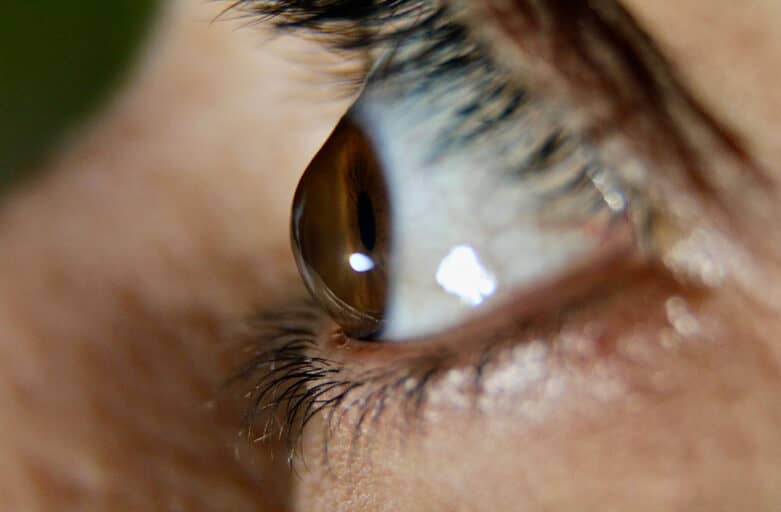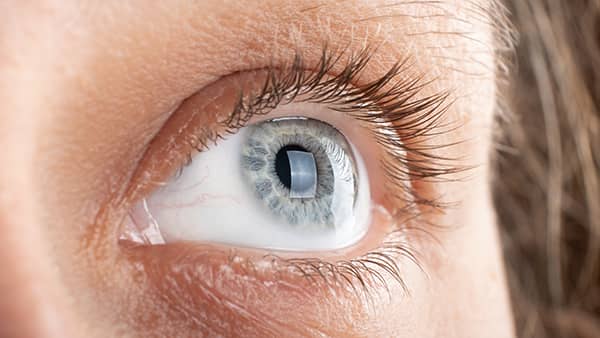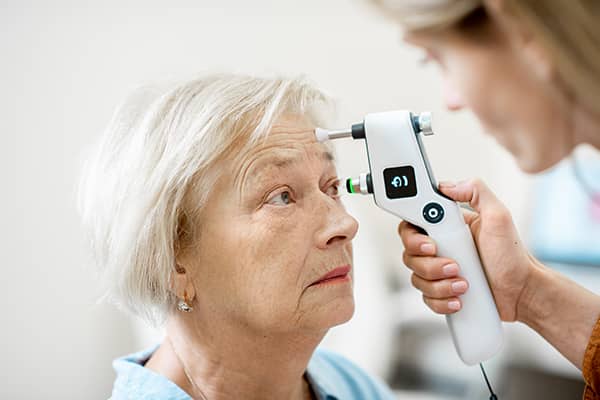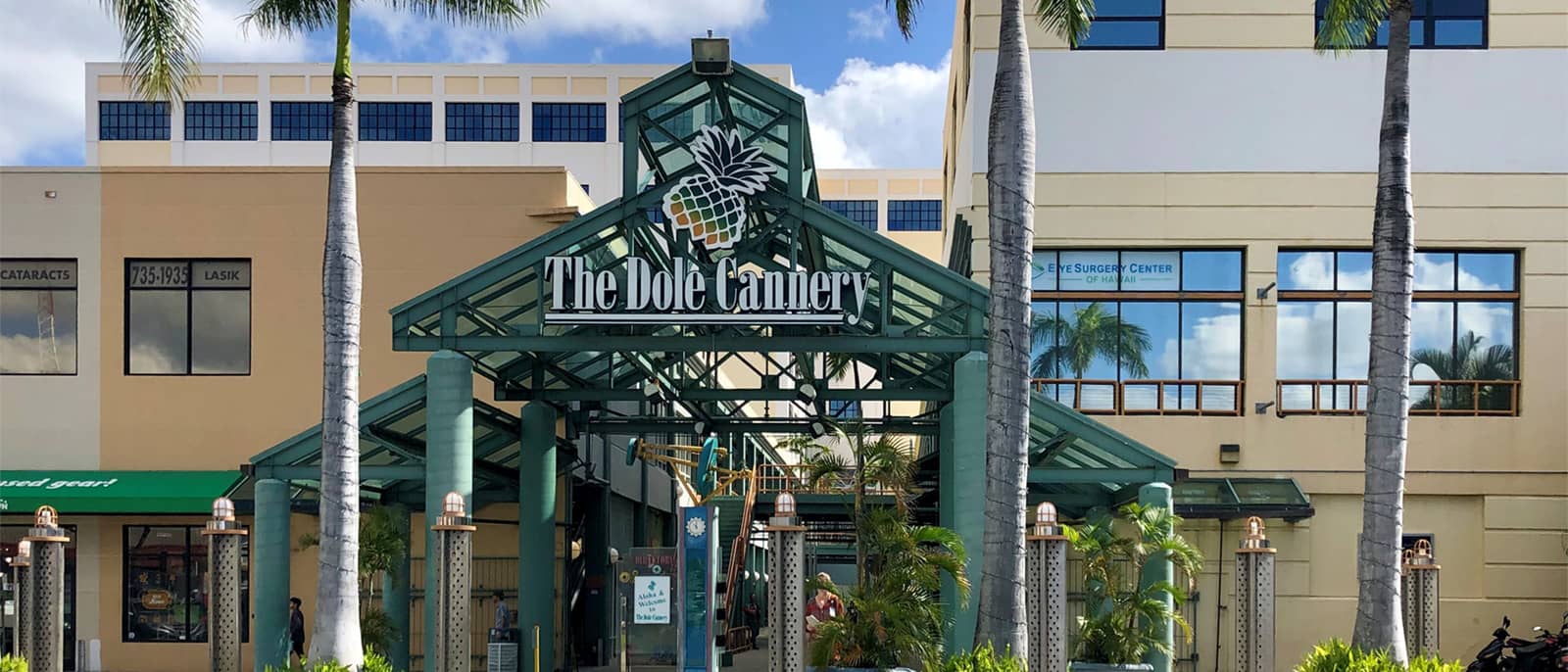Keratoconus and Collagen Cross-Linking in Hawaii
Keratoconus, or KC, is a weakening of the eyes’ corneas due to genetic factors and excessive eye rubbings. It often starts in the early teen years with decreased vision and usually goes undetected.
In the early stages of keratoconus, people might experience slight blurring of vision, distortion of vision, and increased sensitivity to light. Since the cornea is responsible for focusing most of the light that comes into the eye, all of these conditions can result in significant vision loss and may lead to cornea transplant surgery in severe cases.
If the vision is uncorrectable with glasses, then keratoconus screenings should be performed by a specialist ophthalmologist. The screenings are very quick and involve just a few scans that can quickly detect keratoconus and help avoid a lifetime of poor vision due to untreated eye disease. Early diagnosis is extremely important because it allows for keratoconus treatment before symptoms become severe.
Keratoconus may be treated with a corneal cross-linking procedure. This effective treatment involves using special eyedrop medications and exposing the eyes to ultraviolet light to strengthen the weakened cornea. This corneal surgery can help prevent the progression of keratoconus and preserve vision.
EyeSight Hawaii was the first to begin offering collagen cross-linking in Hawaii over five years ago, immediately following FDA approval.


What is CorneaL surgery?
The cornea is the outermost layer of the eye and comprises three layers: the inner epithelial tissue, the middle stroma, and the outer endothelium. These layers help protect the eyes from injury and corneal infection. However, these layers can become damaged in a variety of ways, causing pain and even loss of vision.
Not all surgeries are the same, especially for the cornea. Depending on the reason, different surgeries may be tailored to the specific patient. Regular procedures include full-thickness corneal surgeries, partial-thickness surgeries, and corneal transplant procedures, such as endothelial keratoplasty. All of these treatment options are usually performed on an outpatient basis.
Cornea surgeries are typically quick procedures. Most surgeries can be done in approximately 1 hour, and patients are allowed to go home the same day of the surgery.

BENEFITS OF A CORNEAL SURGERY
Corneal surgery restores vision by repairing damaged tissue. This is the main purpose of the procedure. Both genetic and environmental causes can lead to corneal injury, which can be treated through corneal surgery.
Some corneal injuries may not be serious enough to cause blindness. If an injury causes damage deep within the eye, it may cause partial vision loss. Treatment by a professional is still required for these corneal conditions.
Genetic factors may include hereditary diseases, such as progressive keratoconus, Fuch’s dystrophy, and graft vs. host disease. These conditions affect the eyes to varying extents but may limit vision.
Depending on the reason for which corneal surgery is performed, there may be several associated benefits. Corneal surgery can help prevent bulging in the corneas. It can affect your eyesight and, in some cases, cause them to appear different from normal. Surgeries can also help eliminate eye discomfort caused by the damaged cornea.
Benefits of Modern Corneal Surgery
Corneal diseases were once exclusively treated by performing a full-thickness corneal procedure. For any given surgical procedure, this method was used to treat several types of eye conditions. Individuals who had previously failed surgery can now get customized procedures to treat their conditions.
New approaches allow physicians to provide more precise treatments. These methods may involve grafting techniques, which help to shorten surgery times. Thin tissue grafts are now commonly used to speed up the healing process.
Some people can experience improved vision within just one month or even less.

INITIAL CORNEAL SURGERY CONSULTATION
Blindness or any degree of vision loss is not always due to damaged corneas. Some of these symptoms may not be related to the eyes at all. To better understand these conditions, corneal evaluation in Honolulu or Maui is necessary.
During a visit to our office, we’ll ask patients about their medical history, including any previous eye conditions they’ve had, whether they’re taking any prescription drugs, and, if so, which ones, and anything else that might be relevant to their condition. We’ll then perform a comprehensive eye examination to determine exactly what’s going on.
CORNEAL EXAM
An ophthalmic exam is performed to assess the current state of the eyes and to determine whether additional tests are necessary. This corneal evaluation is performed by a trained optometrist who uses a professional high-powered microscope.
The microscope is designed to detect subtle signs that might indicate the cornea isn’t getting enough oxygen. To check for abnormalities in the corneal tissue, corneal surgeons look at the top layer of the eye.
An eye exam isn’t painful and can be done quite quickly. Before looking through a lens, patients may be asked to use eye drops medication. If the patient is using contacts, they will need to take them out before the exam.
CORNEAL SURGERY PREPARATION
Patients who undergo any kind of surgery will be required to follow the instructions given by their eye surgeon.
Patients may be asked not to wear contact lenses for several days before the procedure, or they may be required to follow certain dietary guidelines. These specifics vary from person to person.


CORNEA SURGERY: HOW IT WORKS
Several kinds of corneal surgery are currently available. Full thickness is one of the procedures most often used for corneal conditions. Endothelial surgery, deep anterior lamella keratoplasty, and keratoprostheses are other surgical options for more specific medical issues.
Patients are usually given both general and local anesthetics to numb the area around their eyes. This prevents unnecessary movement of the eyes.
Depending on the type of procedure, the entire procedure can be completed within one to two hours. However, highly specialized surgeries, such as keratoprosthesis, focus on ocular surfaces and severe corneal diseases. These procedures may require more time to perform.
CORNEAL SURGERY RECOVERY
Patients who undergo surgery on their eyes should avoid sleeping on their backs. Sleeping on your back may cause pressure on the eyeball, affecting your visual recovery time. In addition, if you rub your eyes, they can be permanently damaged. To protect yourself from these problems, you should wear an eyemask at night. In addition, you can apply ointment to the affected areas.
Blurred vision may occur immediately after surgery, but it usually goes away within a week or so. You can resume working normally within one to two days after surgery.

What Patients Say
FREQUENTLY ASKED QUESTIONS ABOUT CORNEAL SURGERY
It depends on the person and the condition. Corneal surgeries can be performed either to completely remove the corneal tissue or just part of it.
Donors don’t need to be the same blood type as recipients for this specific outpatient procedure. Anyone who follows the FDA guidelines for donating their corneas can be a donor.
Usually, yes, you can, but it mostly depends on the specific case. Once the initial eye exam is done, your eye doctor will have a better understanding of your case.
Corneal ulcers may be treated by corneal surgery. It’s usually done after other medical treatment options have failed.
Most times, cornea surgery is covered by insurance, but there may be some exceptions. Other factors to consider include the severity of the disease and the type of operation needed.
Without health coverage, the cost of surgery for advanced cases of corneal disease ranges from $13,000 to $28,000. To get an accurate estimate, book an initial consultation. This can help you get more information about the condition and the surgery choices.
Contact Us Today
Doctors John Olkowski, Kristin Hirabayashi, Michael Dash, and Monika Malecha are highly skilled in a variety of techniques for advanced eye surgery. For a comprehensive overview of treatment options and corneal transplant surgery cost at EyeSight Hawaii in Maui and Honolulu, Hawaii, please contact us today at 808-746-3869.

